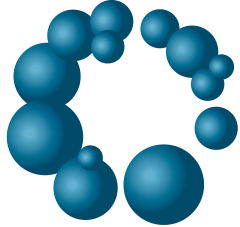In 2023, SFNano welcomes 4 new board members:
Drs. Jeanne Leblond Chain, Claire Monge, Cédric Chauvrierre and Andrey Klymchenko
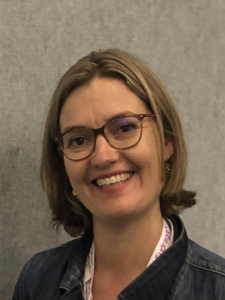
Jeanne Leblond Chain is a drug delivery expert focused on stimuli-responsive systems. Equipped with an engineer degree in organic chemistry, she developed synthetic vectors for gene therapy in her Ph.D. (University Paris VI) and molecular tweezers for controlled drug delivery during her post-doc (Pr. Leroux, U. Montreal). She joined the Faculty of Pharmacy (U. Montreal) in 2011 and directed the Gene Delivery Laboratory for 8 years. In 2019, she was recruited as a senior researcher at INSERM in ARNA laboratory. As a group leader of “Targeted Aptamers, Medicines and Sensing”, she is exploring supramolecular assemblies of lipids and nucleic acids for environment-responsive and controlled drug delivery systems.
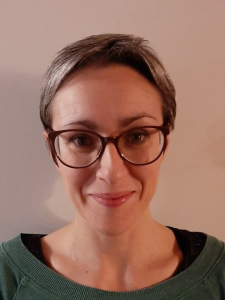
Claire Monge holds a PhD in Physiology-Pharmacology from Grenoble Alpes University (UGA), obtained in 2009. After a stay in the Nijmegen Centre for Molecular Life Sciences (NCMLS, Nijmegen, NL), she performed a second post-doc in the group of Catherine Picart at the Laboratory of Materials and Physical Engineering (LMGP, Grenoble, France). Since 2017, she is a full-time CNRS researcher at the Laboratory of Tissue Biology and Therapeutic Engineering (LBTI, UMR5305, Lyon, France) where she co-leads a research group together with Bernard Verrier. Their projects are based on the development of vaccine nanovectors with a special focus on mucosal administration.
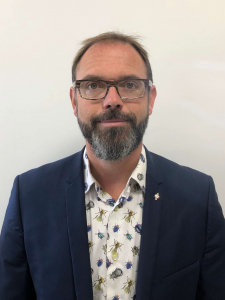
Cédric Chauvierre, 48 years old, obtained his Master degree in Physico-Chemistry from Ecole Centrale Paris in 1999, a PhD in Pharmaceutical Sciences from University Paris XI in 2003 then his accreditation to supervise research in Sciences from University Paris 13 in 2014. After 2 years in a start-up as Scientific Manager, Cédric Chauvierre became Researcher at INSERM in 2005 and joined the Unit 1148 in 2011. Promoted to Research Director, he is now the Head of the nanomedicine group. He has published 45 papers and 3 book chapters on polymer nanoparticles, blood substitute, targeted treatment and molecular imaging of cardiovascular diseases, and holds 5 patents. His work was rewarded with several prices: Valorization from University Paris XI (2002); Young Investigator from APGI-AVENTIS and Aguirre Basualdo from Chancellery of Paris Universities (2004); Thesis from National Academy of Pharmacy and Emergence from OSEO (2005); Espace Pierre-Gilles de Gennes Art & Science award (2013); PEDR INSERM (2020). Motivated by spreading on his insights, he has given more than 25 invited lectures, including plenary and has supervised 3 post-Docs and 8 PhD students. Awarded research funding comprises several European and national contracts as coordinator and Work Package leader: French Army (DGA N° 07.34.004); ANR Emergence (MicroSound and FightClot); ANR Labcom (FucoChem); European FP7 large scale project (NanoAthero); IdEx Université Paris Cité (P-Selectin Diagnosis); ); IdEx 2 Université Paris Cité (Repro-Bulles) for 3 M€. He is member of INSERM CSS7 and Management board of the UFR of Medicine Université Paris Cité. His expertise in nanoparticles also dragged him to the INSERM Office of Coordination and Risk Prevention as consultant.
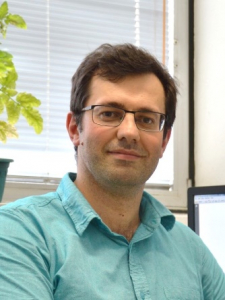
Andrey Klymchenko obtained his PhD degree in 2003 from Kyiv National University. Then, he worked as post-doctoral fellow in the University of Strasbourg and Catholic University of Leuven. Then, he joined CNRS in 2006, received CNRS Bronze Medal in 2010 and was promoted to Director of Research in 2014. In 2015, he obtained ERC consolidator grant BrightSens to work on fluorescent nanoparticles for ultrasensitive detection of cancer markers. In 2021, he received Prix du Dr et de Mme Henri LABBE from French Academy of Sciences and he was elected a member of Academia Europaea. He is a leader of “Nanochemistry and Bioimaging” group. His research interests include functional fluorescent molecules and nanomaterials for biosensing, imaging and in vitro diagnostics. He is a co-founder of a start-up BrightSens Diagnostics focused on molecular in vitro diagnostics based on fluorescent nanoparticles. He is a co-author of over 240 peer-reviewed articles and 12 patents.

